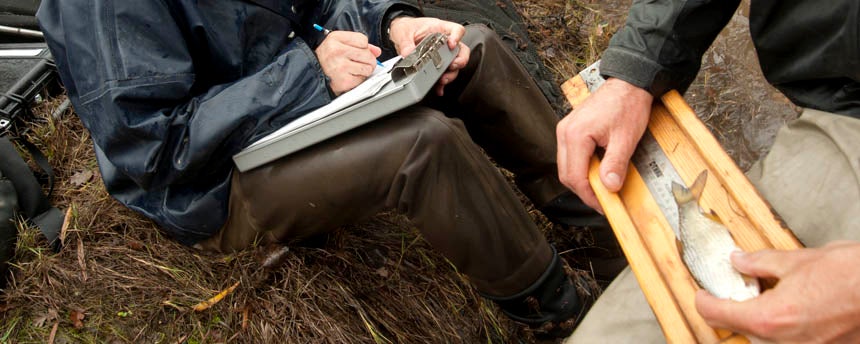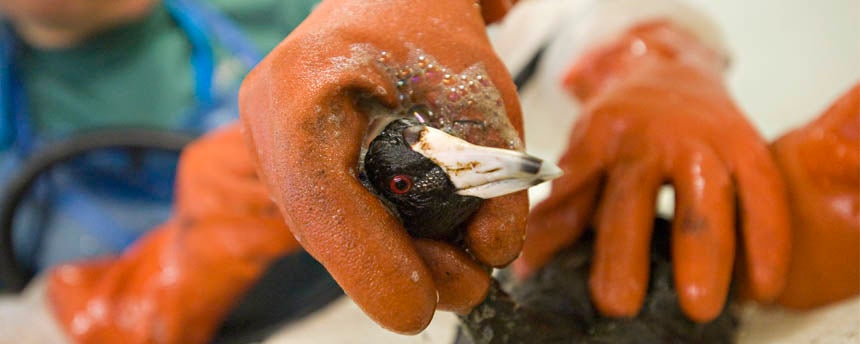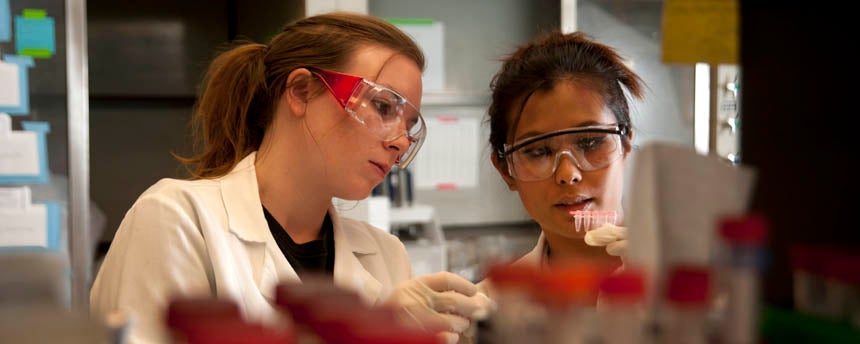Ten years ago, I shared an apartment with a friend studying veterinary medicine. Sure, she was busy, but we had time most days to sit together on the couch and eat ice cream while watching Jon Stewart on Comedy Central. Sometimes she’d take weekend trips to help a colleague out on a farm, and once she traveled to Thailand for a training exchange. We moved out of that home and on with our own lives, until recently when I sought her out to meet my newly adopted dog. At the clinic, my friend was anything but the lazing, laughing sort. She was calling the shots smoothly and sharply, and all the pets and their owners perked up at her voice. My friend had transformed into an everyday superhero. I was fascinated by her diversity of skills and degree of authority in, what seems to me, a wilderness of diagnoses and treatments. I realized that to work at the interface of human, animal and environmental health means you yourself must also be multi-faceted.
If you’ve ever wondered what it’s like to grow into your job in a field like One Health that’s growing too, then let these stories from graduates of the UC Davis School of Veterinary Medicine lead your way to a clearer understanding and some inspiration.
“Surgery would come, a spay would be on the table, and my heart is racing. I’m thinking, Oh my gosh, I gotta cut this animal.”
What would you do with a knife—and a life—in your hands? Deana Clifford set to the task. She practiced her clinical skills. Looking back, she wishes she had practiced more, to build as much confidence as possible. But at the time, as a student, she realized that some of her classmates were “clinically gifted” and that she “was not one of those” students.
Instead of giving up or struggling towards a conventional clinical career, she acknowledged that her research interests were strong. “I came into vet school with an idea that I wanted to do free ranging wildlife population work,” she says. She now serves as a wildlife veterinarian for the California Department of Fish and Wildlife. She still does animal surgeries, to implant transmitters for monitoring and other studies, and admits, “I’m a slow, thorough, scared-to-death surgeon every time I do it.” Could that be because, as a colleague posits, these days Deana is doing surgeries on endangered species like the Amargosa vole?
Advice from the expert: “Triage your strengths.”

“I wanted to explore.”
Kirsten Gilardi, Professor and Co-director of the Karen C. Drayer Wildlife Health Center, years ago found herself considering leaving her tight cohort of classmates and delaying her degree, not to mention living on the other side of the world. “I almost stepped away from four years in vet school in order to spend a few months in Antarctica working on seabirds.”
“Somewhere in the back of my mind,” she remembers, “I knew this [was] the right decision if only because it [would] be so interesting and exciting to be there. If that was all I got out of it, that would be fine.” But that wasn’t all she got out of it, not in the least. By openly discussing options with her degree program advisors at UC Davis, she made the most of her trip. She worked on seabirds, sure, and also collected data, met new mentors, and enriched her veterinary expertise with a new perspective from down under.
Advice from the expert: “Seize opportunities.”

“I will be doing surgery on horses pretty much every day for the rest of my life. Is that what I want?”
In other words, Christine Johnson, UC Davis Professor of Ecosystem Health, was asking herself, residency or research? She pursued the latter, a Ph.D., in veterinary school and gained a very specialized skill set.
But Johnson isn’t limited by her research track. She’s found ways to broaden her work and its impact. “Like Kirsten,” she says, “I try to surround myself with people who don’t have a Ph.D. because I need their perspective and their skill set, which has to be different than mine” because her expertise, while deep, is also narrow. And she’s into that; it drives her. “If you’re thinking of a research degree,” she quips, “love research. Don’t do it necessarily to get you a dream job.”
Advice from the expert: Seek others’ perspectives, and if you’re going to pursue research, “love research.”

This information is adapted from an article and video series in the Evotis newsletter published by the UC Davis One Health Institute.
Other Pathways to One Health Work
- Students for One Health serves local communities and engages worldwide with clinics and knowledge exchange.
- The Global Disease Biology Major for UC Davis undergraduates explores the science behind discoveries, causes, evolution, diagnosis, treatment and prevention of diseases.
Related
- The Woman Protecting Us from the Next Pandemic
- Future Veterinarian Carolina Vicario Talks Cultural Awareness
- Career Tips for Vet Med Students
- 6 Positive Outcomes of a One Health Clinic
Amy Whitcomb is an editor on the web team in Strategic Communications.